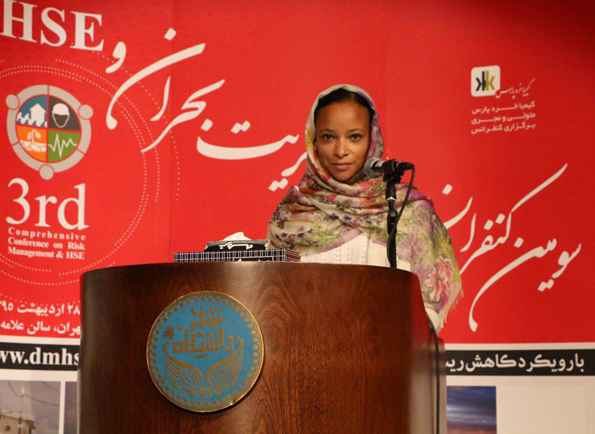UNESCO supports 3rd Comprehensive Conference on Disaster Management and Health, Safety and Environment in Tehran

The 3rd Comprehensive Conference on “Disaster Management and Health, Safety and Environment with the approach of Disaster Risk Reduction, Resiliency and Sustainable Development” started on 16 May 2016, AVA Diplomatic reports.
The two-day gathering brought together disaster managers, scientists, urban planners and academics to discuss topics such as risk management of climate hazards; information management in disasters; risk assessment and disaster risk reduction; and health management in disasters
During the opening ceremony, Dr. Mehdi Zare, Scientific Chair of the Conference and Faculty member at International Institute of Earthquake Engineering and Seismology (IIEES) presented an overview of the Hyogo Framework for Action and the Sendai Framework and explained the different definitions linked to disaster management and disaster risk reduction.
After that, Mr. Sattar Mahmoudi, Deputy Minister of Energy, delivered a speech about the importance of disaster risk reduction, in which he talked about the efforts that are being made in the Islamic Republic of Iran.
Ms. Kuisch Laroche, Director and Representative of the UNESCOTehran Cluster Office delivered a keynote speech on UNESCO’s work in disaster risk reduction and sustainable development. “I would like to tell you today that there is no such thing as a natural disaster”, said Ms. Kuisch Laroche. “There are only natural hazards and a disaster’s severity depends on how much impact a hazard has on society and the environment. The scale of that impact depends on the choices we, humans, make for our lives and our environment. Each decision and action makes us either more vulnerable to disasters or more resilient to them. Therefore, disaster risk reduction is all about choices.
The UNESCO representative said that reducing exposure to hazards, lessening vulnerability of people and property, wise management of land and the environment, and improving preparedness and early warning for adverse events were all examples of disaster risk reduction and areas in which UNESCO supports its Member States.
She talked about UNESCO’s work in support of the four priorities of the Sendai Framework through the Organization’s programmes in Education, Culture, Sciences and Communication & Information, and mentioned a number of activities undertaken in the region by UNESCO’s Tehran Cluster Office.
The speeches were followed by a panel discussion on the maneuver of Tehran floodwater. The second day of the conference will include a series of workshops focusing on practical issues around risk assessment and DRR, as well as health management in emergencies.

